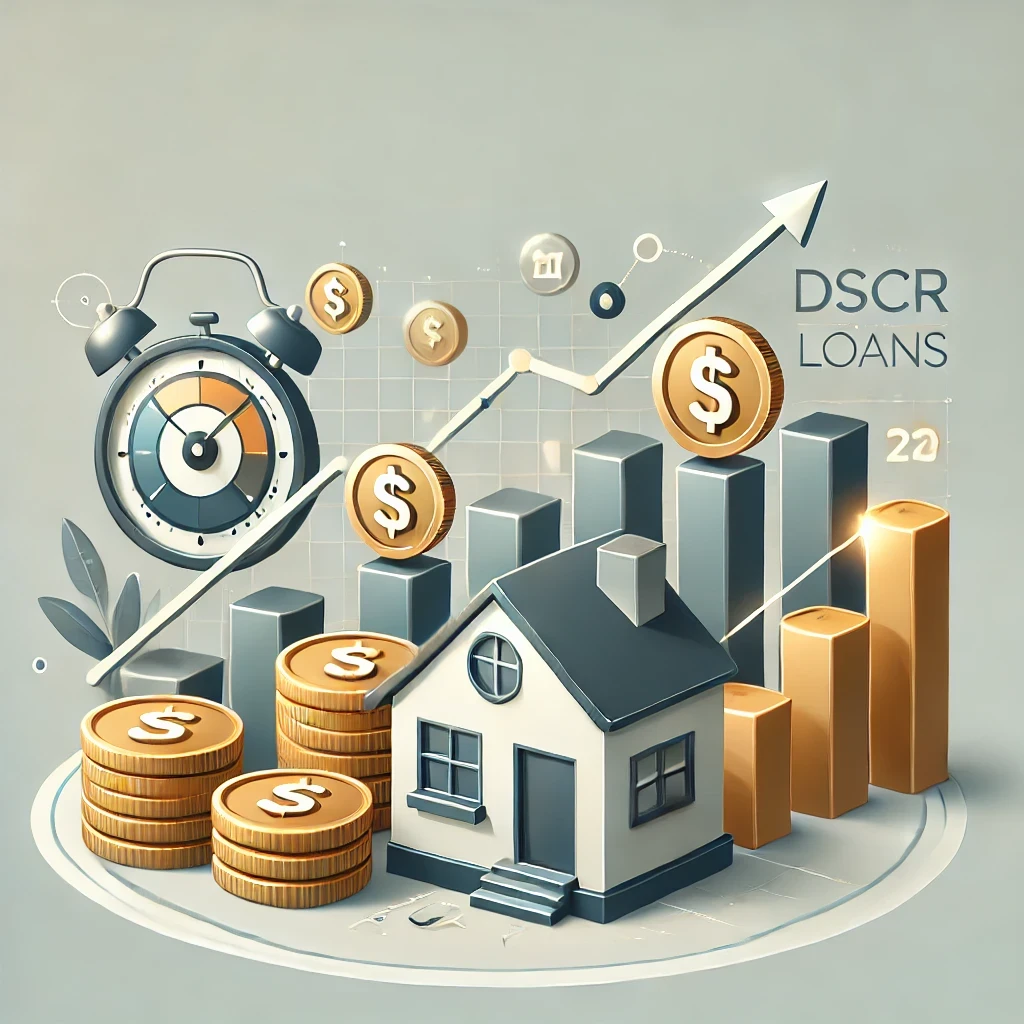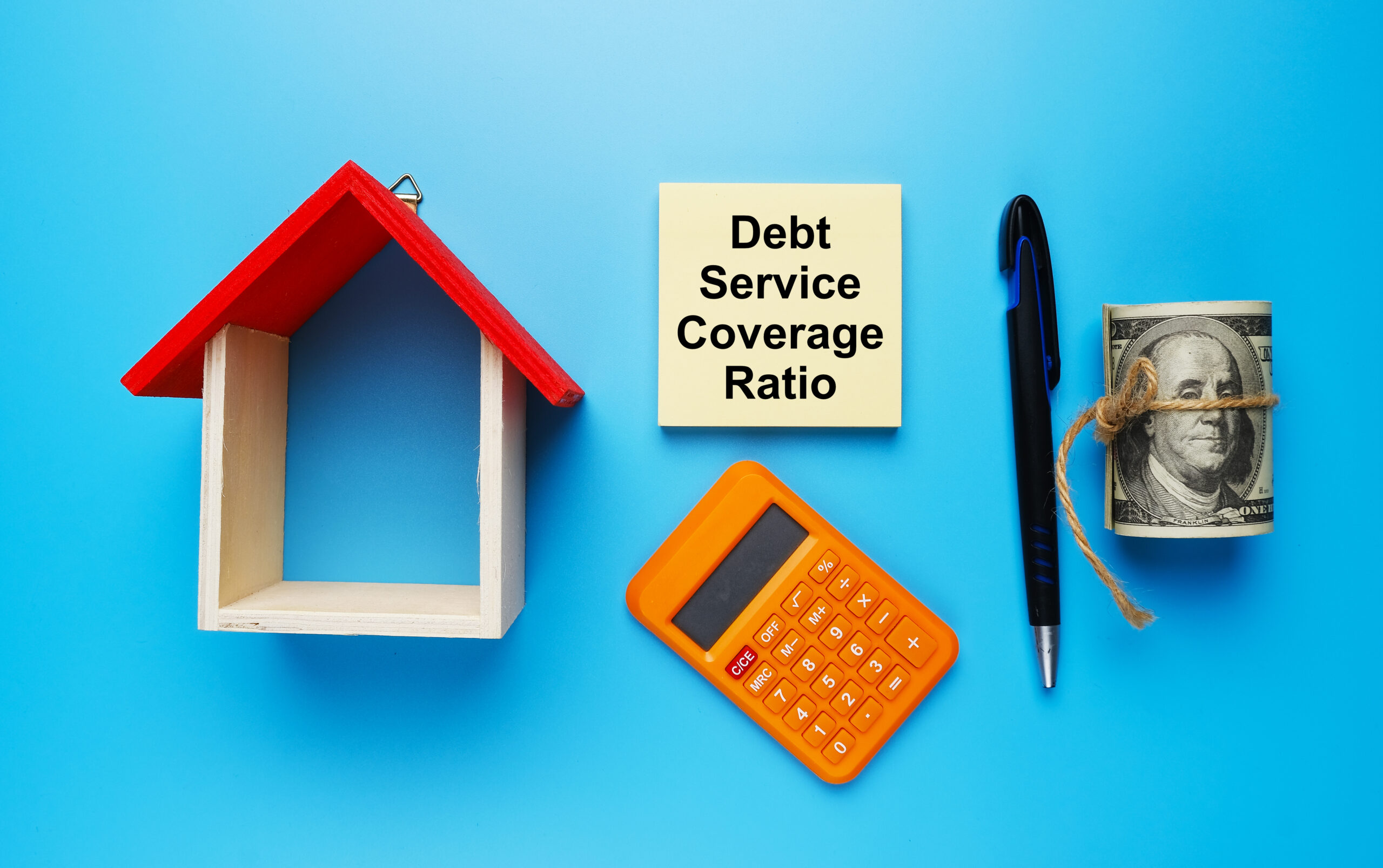A Step-by-Step Guide to Securing a Bridge Loan for Your Next Investment
Bridge loans are an essential tool for real estate investors who need quick access to capital to secure a new property while

Real estate investment offers significant opportunities for wealth creation, but securing the right financing can often be a challenge, especially for investors who don’t fit the traditional borrower profile. This is where DSCR (Debt Service Coverage Ratio) loans come into play. These loans provide a unique and flexible financing solution that prioritizes the income generated by the property over the borrower’s personal financials, making them an ideal choice for real estate investors. In this article, we’ll explore how DSCR loans can help you maximize your real estate investments and grow your portfolio.
A DSCR loan is a type of non-qualified mortgage specifically designed for real estate investors. Unlike traditional mortgages, which often require extensive personal income verification, DSCR loans focus on the property’s ability to generate income. The key metric used in these loans is the Debt Service Coverage Ratio (DSCR), which measures the property’s net operating income (NOI) relative to its debt obligations, including mortgage payments, taxes, insurance, and other related expenses.
To qualify for a DSCR loan, the property typically needs to have a DSCR greater than 1.0, meaning it generates enough income to cover its debt obligations. This approach allows investors, especially those with unconventional income streams, such as self-employed individuals or those with significant tax deductions, to secure financing without the hurdles of traditional income documentation.
The DSCR is calculated by dividing the property’s net operating income (NOI) by its total debt service. For example, if a property generates $10,000 in NOI and has $8,000 in annual debt service, the DSCR would be 1.25x, indicating that the property produces 25% more income than is needed to cover its debt obligations. A DSCR above 1.0 is typically required by lenders, as it demonstrates that the property generates sufficient income to repay the loan.
One of the primary benefits of DSCR loans is that they allow investors to qualify based on the income-generating potential of the property rather than their personal income. This opens up financing opportunities for a broader range of investors, including those with multiple properties, self-employed individuals, and investors with complex financial situations.
Flexibility in Qualification
The primary advantage of DSCR loans is the flexibility they offer in the qualification process. Traditional mortgages often require extensive personal income documentation, such as W-2s, tax returns, and employment history. However, DSCR loans focus on the property’s cash flow, making it easier for investors with non-traditional income streams to qualify. This is particularly beneficial for real estate investors who reinvest most of their income back into their properties or who have significant write-offs that reduce their taxable income.
Unlimited Loan Potential
Another significant benefit of DSCR loans is the ability to secure multiple loans without the typical restrictions imposed by traditional mortgages. Since DSCR loans are based on the income of the property, rather than the borrower’s debt-to-income ratio, investors can continue to grow their portfolios without hitting the ceiling on the number of loans they can secure. This is a game-changer for investors looking to expand their holdings and maximize their returns.
Diverse Property Options
DSCR loans are versatile and can be used to finance a wide range of residential income-producing properties, including single-family homes, duplexes, triplexes, and larger multi-unit buildings. This flexibility allows investors to diversify their portfolios and capitalize on different types of rental properties, from short-term vacation rentals to long-term residential leases.
No Personal Income Verification
One of the most attractive features of DSCR loans is the elimination of personal income verification requirements. This is a significant advantage for self-employed investors, freelancers, and others with complex financial situations that may not meet the stringent requirements of traditional mortgages. By focusing solely on the property’s income, DSCR loans streamline the application process and make it easier for investors to secure financing.
For real estate investors, the ability to leverage the income potential of their properties is key to growing their portfolios. DSCR loans provide the flexibility and access to capital needed to acquire and manage multiple properties, without the constraints of traditional financing. By focusing on the property’s cash flow, investors can continue to expand their holdings, even if their personal income doesn’t fit the conventional mold.
Moreover, the ability to finance a diverse range of properties with DSCR loans allows investors to capitalize on different market opportunities. Whether you’re looking to invest in single-family homes, multi-unit residential buildings, or short-term rental properties, DSCR loans offer the versatility needed to adapt to changing market conditions and investment strategies.
While DSCR loans offer numerous benefits, there are a few considerations to keep in mind. Interest rates on DSCR loans may be higher than those of traditional mortgages, reflecting the increased risk to lenders. Additionally, lenders typically require a DSCR above 1.0 to ensure the property generates enough income to cover its debts. It’s also important to consider the lender’s requirements for credit scores and loan-to-value (LTV) ratios, which can impact the terms of the loan.
DSCR loans are an excellent option for real estate investors looking to maximize their portfolio growth without the constraints of traditional income verification. If you’re an investor with multiple properties, self-employment income, or a complex financial situation, a DSCR loan could be the key to unlocking further investment opportunities.
In conclusion, DSCR loans provide a powerful financing solution that allows real estate investors to focus on the income-generating potential of their properties. By leveraging DSCR loans, you can continue to grow your portfolio, diversify your investments, and achieve your long-term financial goals. If you’re ready to explore the possibilities of DSCR loans, reach out to us today—we’re here to help you succeed in your real estate journey.
Bridge loans are an essential tool for real estate investors who need quick access to capital to secure a new property while

DSCR (Debt Service Coverage Ratio) loans offer real estate investors a flexible financing option that focuses on the property’s income rather than personal financials. This approach makes it easier for investors, especially those with non-traditional income, to secure the funds needed to grow their portfolios. In this post, we explore the benefits of DSCR loans and how they can help you take your real estate investments to the next level.